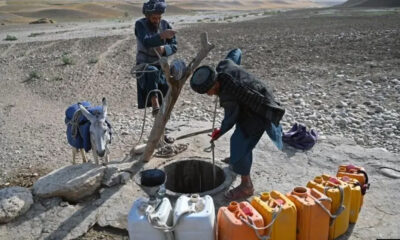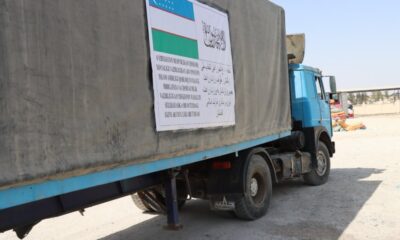Latest News
More than 600,000 Afghans return home in past year
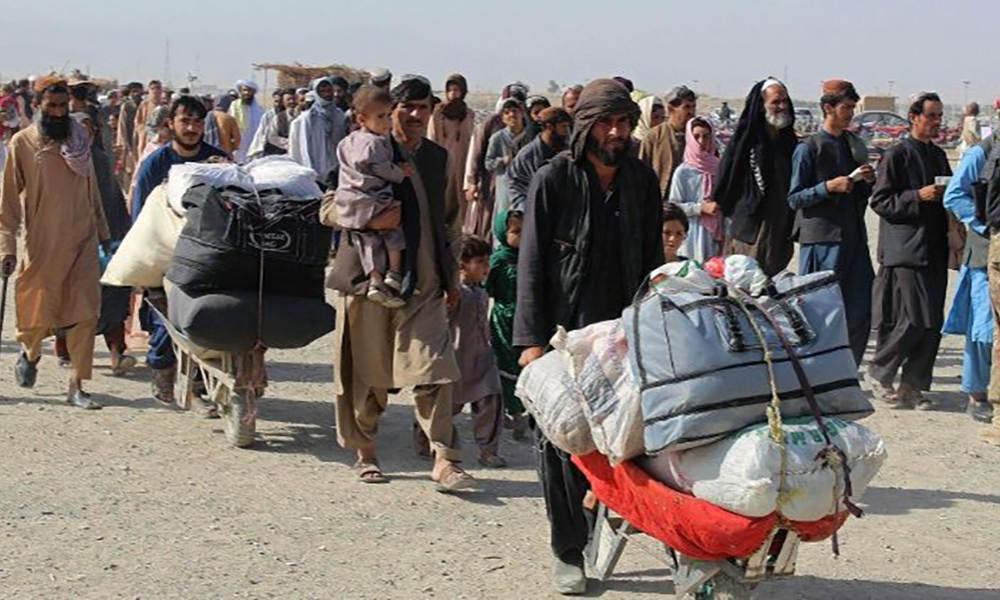
The Ministry of Refugees and Repatriation said Sunday that in the last year, more than 600,000 Afghans have returned to the country.
Mohammad Arsala Kharoti, Deputy Minister of Refugees and Repatriation Affairs said at a press conference, as part of the IEA’s accountability program: “622,800 Afghans returned to Afghanistan from Pakistan, Iran and other countries under the rule of the Islamic Emirate, and 116,868 returnees in the border provinces have received humanitarian aid.”
According to officials, 272,925 internally displaced families were identified in the past year, 78,421 families were transferred to their native provinces and 860,640 families received humanitarian aid.
In addition, education has been provided for 8,400 returnees and internally displaced persons, and 1,600 Afghans has been stopped from leaving the country illegally.
According to the ministry, the management of the transfer and distribution of humanitarian aid from China, Kyrgyzstan, Qatar and Pakistan, the distribution of aid to 7,000 flood victims in Helmand and Kandahar, the distribution of emergency aid to the victims of Jawzjan, Badakhshan, Badghis, Khost and Paktika, the transfer of 36,000 displaced families from Kabul, fair distribution of humanitarian aid from Al-Khidmat Institute in Paktika, collecting aid for 1,000 families in Panjshir, organizing vocational training courses and distributing equipment to 160 families, are some of the actions of this ministry in the past year.
Officials said due to the follow-up efforts of the leadership of this ministry, during the current year, 250 Afghan immigrants living in Pakistan and Iran were able to perform Hajj.
According to the officials, the necessary arrangements have been made with Pakistan, China, Iran and Turkey regarding the handling of the situation of Afghan immigrants, the provision of services and the establishment of an orphanage with a capacity of 20 thousand people, and in order to provide emergency services, distribute aid and create economic opportunities 47 memorandums of understanding have been signed with partner institutions and organizations.
Latest News
OCHA warns of intensifying water crisis in Afghanistan
OCHA noted that while some areas of Afghanistan have seen rainfall approaching average levels, overall precipitation remains significantly below normal.
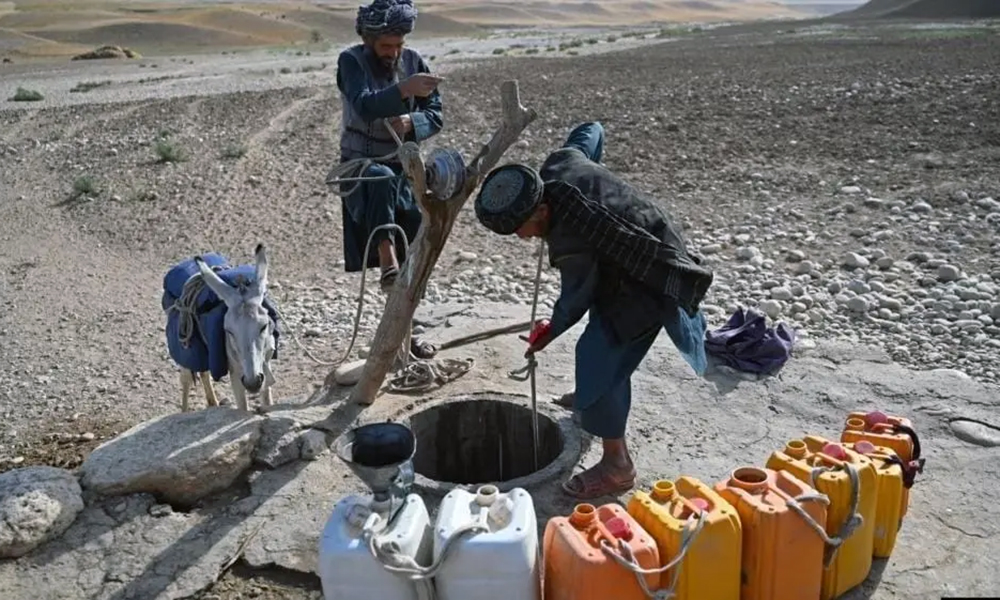
The United Nations Office for the Coordination of Humanitarian Affairs (OCHA) has issued a warning about the worsening water crisis in Afghanistan, citing below-average rainfall across much of the country.
In a recent report, OCHA noted that while some areas of Afghanistan have seen rainfall approaching average levels, overall precipitation remains significantly below normal.
Snowmelt volumes in most river basins are also lower than average and continuing to decline—further aggravating the water shortage.
OCHA highlighted that data from the Agricultural Stress Index (ASI) indicates markedly reduced vegetation growth in many regions, signaling the onset of drought conditions.
The agency also reported that soil moisture at root depth is critically low in most parts of the country, with the exception of some northern and northeastern provinces.
This poses serious concerns for agricultural productivity.
OCHA added that land surface temperatures across Afghanistan are above average, apart from limited areas in the northeastern provinces.
Forecasts suggest that above-average temperatures and below-normal rainfall are likely to persist in the coming months.
These conditions, the report warns, are expected to intensify the water crisis, leading to further declines in crop yields and damaging pasturelands vital for livestock.
As of March, this year, the provinces of Faryab and Jawzjan in northern Afghanistan have been identified as the most severely affected by reduced precipitation and rising temperatures. Other areas at critical risk include Helmand in the south, Herat in the west, Kunduz in the northeast, and Nangarhar in the east.
Afghanistan has been grappling with severe drought and declining rainfall for several consecutive years.
The prolonged droughts have depleted water supplies across the country, including in major urban centers, leaving many communities with limited access to safe drinking water.
The country is also increasingly vulnerable to extreme weather events, including flash floods, and remains one of the most climate-vulnerable nations in the world—despite contributing minimally to global greenhouse gas emissions and climate change.
Latest News
Uzbekistan sends agricultural aid to Afghanistan
The aid includes 20 tons of rice seed, five tons of cotton seed, and 1.3 tons of vegetable seeds.
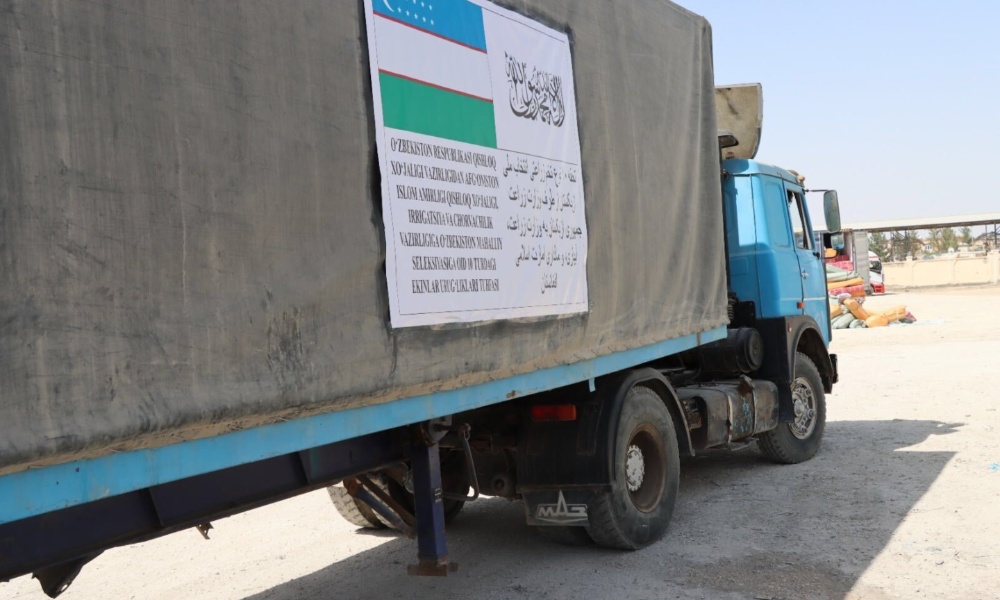
Uzbekistan has delivered a shipment of agricultural assistance to Afghanistan, consisting of improved seed, which was officially handed over to the Ministry of Agriculture of the Islamic Emirate at the Hairatan port.
Officials from Afghanistan’s Ministry of Agriculture, Irrigation, and Livestock took delivery of the consignment on Sunday during an official ceremony at Hairatan in Balkh province.
According to the Ministry, the aid includes 20 tons of rice seed, five tons of cotton seed, and 1.3 tons of vegetable seeds.
Misbahuddin Mustaeen, Director of Grains at the Ministry, stated during the ceremony that the seeds will be distributed to the agricultural departments of the provinces of Jawzjan, Kunduz, Takhar, Balkh, Samangan, and Baghlan for research and augmentation purposes.
He added that in the near future, agricultural tools and machinery are also expected to be sent by Uzbekistan.
According to him, these contributions are part of the commitments made by Uzbek officials during the recent visit of Afghanistan’s Minister of Agriculture to Tashkent.
Latest News
IEA urges France to reopen its embassy in Kabul
Shaheen emphasized to the French diplomat that “it would be better for France to reactivate its political presence in Kabul.”

Suhail Shaheen, Acting Head of the Afghan Embassy in Qatar, has called on France to reopen its embassy in Kabul.
According to the embassy the request was made during a meeting between Shaheen and Jean-Marie Chau, the French Charge d’Affaires for Afghanistan and that the two sides discussed a range of issues including the political situation, bilateral relations, humanitarian assistance, and cooperation in preserving Afghanistan’s cultural heritage.
Shaheen emphasized to the French diplomat that “it would be better for France to reactivate its political presence in Kabul.”
France closed its embassy in Kabul following the return of the Islamic Emirate to power in August 2021.
-

 Latest News5 days ago
Latest News5 days agoIslamic Emirate of Afghanistan ‘concerned’ over rising tensions between Pakistan and India
-

 Latest News5 days ago
Latest News5 days agoPassport Directorate earns nearly 13 billion AFN in one year
-

 Regional4 days ago
Regional4 days agoIndia dismisses report of Pakistan downing jets as “disinformation”
-

 Latest News5 days ago
Latest News5 days agoUNAMA seeks over $400 million to support returnees to Afghanistan in 2025
-

 Sport4 days ago
Sport4 days agoAriana Television to broadcast 4th edition of Afghanistan Futsal Premier League
-

 Latest News4 days ago
Latest News4 days agoTAPI pipeline to reach Herat by end of 2025: Ministry
-

 Latest News4 days ago
Latest News4 days agoNearly one-third grapple with hunger in Afghanistan: WFP
-

 Sport4 days ago
Sport4 days agoIPL 2025: Dharamsala match abandoned due to security concerns


